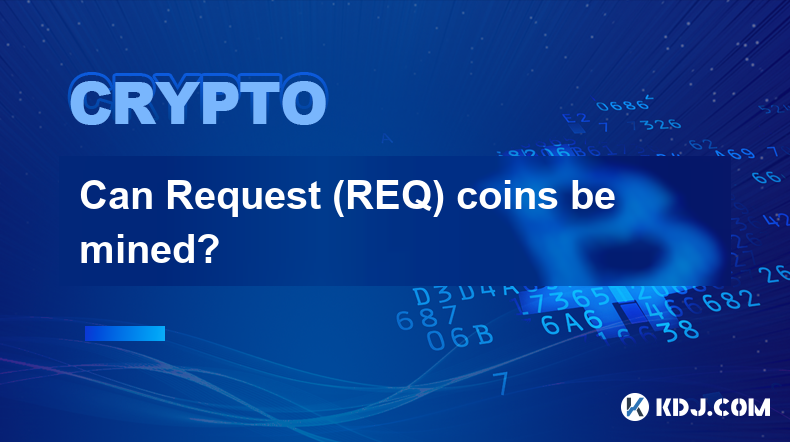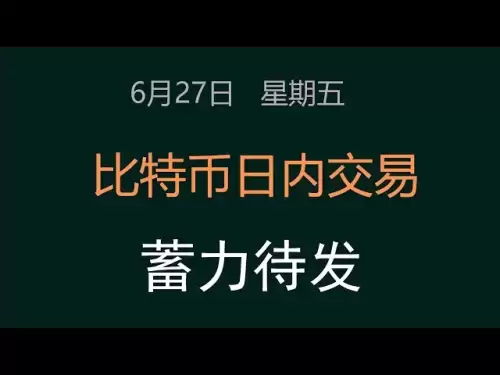-
 Bitcoin
Bitcoin $107,323.9971
-0.42% -
 Ethereum
Ethereum $2,442.7415
-1.58% -
 Tether USDt
Tether USDt $1.0005
0.00% -
 XRP
XRP $2.0902
-4.49% -
 BNB
BNB $645.3561
-0.33% -
 Solana
Solana $140.8832
-2.81% -
 USDC
USDC $0.9999
0.01% -
 TRON
TRON $0.2713
0.17% -
 Dogecoin
Dogecoin $0.1611
-2.35% -
 Cardano
Cardano $0.5556
-2.75% -
 Hyperliquid
Hyperliquid $36.8045
-1.10% -
 Bitcoin Cash
Bitcoin Cash $494.4393
-1.23% -
 Sui
Sui $2.6406
-2.97% -
 Chainlink
Chainlink $13.0846
-1.74% -
 UNUS SED LEO
UNUS SED LEO $9.0127
0.09% -
 Avalanche
Avalanche $17.4023
-1.37% -
 Stellar
Stellar $0.2339
-3.25% -
 Toncoin
Toncoin $2.8330
-0.57% -
 Shiba Inu
Shiba Inu $0.0...01124
-3.38% -
 Litecoin
Litecoin $84.9229
-0.60% -
 Hedera
Hedera $0.1432
-3.84% -
 Monero
Monero $311.0740
-1.35% -
 Bitget Token
Bitget Token $4.6591
3.94% -
 Dai
Dai $1.0001
0.01% -
 Ethena USDe
Ethena USDe $1.0000
-0.01% -
 Polkadot
Polkadot $3.3033
-1.64% -
 Uniswap
Uniswap $6.9221
-4.55% -
 Pi
Pi $0.5546
-4.86% -
 Aave
Aave $257.5046
-1.30% -
 Pepe
Pepe $0.0...09215
-3.26%
Can Request (REQ) coins be mined?
REQ coins, utility tokens in the Request Network ecosystem, are not mineable due to their non-reliance on proof-of-work mining and their use of proof-of-stake as a consensus mechanism.
Dec 25, 2024 at 09:45 pm

Key Points:
- Understanding the nature of REQ coins
- The process of mining in the cryptocurrency context
- Applicability of mining to REQ coins
- Alternative methods for acquiring REQ coins
- FAQs about REQ coins and mining
Can REQ Coins Be Mined?
Request (REQ) coins are part of the Request Network ecosystem, a platform that facilitates decentralized payments and requests. Unlike traditional cryptocurrencies such as Bitcoin, REQ coins are not designed to be mined through computational processes.
Understanding the Nature of REQ Coins
REQ coins are utility tokens used within the Request Network for various functions:
- As a payment mechanism for request creation and fulfillment
- For staking and participating in the network's governance
- As incentives for network participants, such as requestors and fulfillers
REQ coins have a predetermined supply and are issued in accordance with the project's tokenomics model. They are designed to facilitate efficient and cost-effective transactions within the Request Network.
The Process of Mining in Cryptocurrency
Mining in the cryptocurrency context typically involves solving complex mathematical puzzles using specialized hardware to add new blocks to a blockchain network. This process secures the network, verifies transactions, and releases new coins into circulation as a reward for successful miners.
Applicability of Mining to REQ Coins
REQ coins are not mineable because they are not based on a proof-of-work or similar consensus algorithm that requires mining. The Request Network uses a proof-of-stake mechanism, where validators stake REQ coins to participate in the network's consensus process.
Alternative Methods for Acquiring REQ Coins
Since REQ coins cannot be mined, they can be acquired through the following methods:
- Exchanges: REQ coins are listed on numerous cryptocurrency exchanges, where they can be bought and sold using fiat currencies or other cryptocurrencies.
- Over-the-counter (OTC) trading: REQ coins can be purchased or sold directly with other individuals or through OTC desks.
- Request Network platform: REQ coins can be acquired by participating in the Request Network as a requestor or fulfiller.
FAQs
- Why are REQ coins not mineable? REQ coins are designed as utility tokens for the Request Network, and mining is not a necessary mechanism for securing the network or verifying transactions.
- What is the alternative to mining for REQ coins? Proof-of-stake is the consensus mechanism used in the Request Network, where validators stake REQ coins to participate in the network's governance and earn rewards.
- How can I acquire REQ coins? REQ coins can be bought on cryptocurrency exchanges, through OTC trading, or by participating in the Request Network platform.
Disclaimer:info@kdj.com
The information provided is not trading advice. kdj.com does not assume any responsibility for any investments made based on the information provided in this article. Cryptocurrencies are highly volatile and it is highly recommended that you invest with caution after thorough research!
If you believe that the content used on this website infringes your copyright, please contact us immediately (info@kdj.com) and we will delete it promptly.
- Queenstown Tech Super-charging: A Glimpse into the Future
- 2025-06-28 00:30:12
- Dogecoin, Ethereum, Solana: Decoding the Crypto Climate in the Big Apple
- 2025-06-28 00:47:15
- Sonic Speed Meets Mana Might: A Magic: The Gathering Crossover!
- 2025-06-28 00:37:13
- Bitcoin Price Puzzle: Institutional Buying vs. Market Discrepancy Explained
- 2025-06-27 22:30:12
- Neo Pepe Coin ($NEOP): Certik Audit Success & Crypto Presales Heats Up
- 2025-06-27 22:30:12
- Bitcoin Price Prediction: Mixed Signals as BTC Eyes $110K
- 2025-06-27 22:50:11
Related knowledge

How to customize USDT TRC20 mining fees? Flexible adjustment tutorial
Jun 13,2025 at 01:42am
Understanding USDT TRC20 Mining FeesMining fees on the TRON (TRC20) network are essential for processing transactions. Unlike Bitcoin or Ethereum, where miners directly validate transactions, TRON uses a delegated proof-of-stake (DPoS) mechanism. However, users still need to pay bandwidth and energy fees, which are collectively referred to as 'mining fe...

USDT TRC20 transaction is stuck? Solution summary
Jun 14,2025 at 11:15pm
Understanding USDT TRC20 TransactionsWhen users mention that a USDT TRC20 transaction is stuck, they typically refer to a situation where the transfer of Tether (USDT) on the TRON blockchain has not been confirmed for an extended period. This issue may arise due to various reasons such as network congestion, insufficient transaction fees, or wallet-rela...

How to cancel USDT TRC20 unconfirmed transactions? Operation guide
Jun 13,2025 at 11:01pm
Understanding USDT TRC20 Unconfirmed TransactionsWhen dealing with USDT TRC20 transactions, it’s crucial to understand what an unconfirmed transaction means. An unconfirmed transaction is one that has been broadcasted to the blockchain network but hasn’t yet been included in a block. This typically occurs due to low transaction fees or network congestio...

How to check USDT TRC20 balance? Introduction to multiple query methods
Jun 21,2025 at 02:42am
Understanding USDT TRC20 and Its ImportanceUSDT (Tether) is one of the most widely used stablecoins in the cryptocurrency market. It exists on multiple blockchain networks, including TRC20, which operates on the Tron (TRX) network. Checking your USDT TRC20 balance accurately is crucial for users who hold or transact with this asset. Whether you're sendi...

What to do if USDT TRC20 transfers are congested? Speed up trading skills
Jun 13,2025 at 09:56am
Understanding USDT TRC20 Transfer CongestionWhen transferring USDT TRC20, users may occasionally experience delays or congestion. This typically occurs due to network overload on the TRON blockchain, which hosts the TRC20 version of Tether. Unlike the ERC20 variant (which runs on Ethereum), TRC20 transactions are generally faster and cheaper, but during...

The relationship between USDT TRC20 and TRON chain: technical background analysis
Jun 12,2025 at 01:28pm
What is USDT TRC20?USDT TRC20 refers to the Tether (USDT) token issued on the TRON blockchain using the TRC-20 standard. Unlike the more commonly known ERC-20 version of USDT (which runs on Ethereum), the TRC-20 variant leverages the TRON network's infrastructure for faster and cheaper transactions. The emergence of this version came as part of Tether’s...

How to customize USDT TRC20 mining fees? Flexible adjustment tutorial
Jun 13,2025 at 01:42am
Understanding USDT TRC20 Mining FeesMining fees on the TRON (TRC20) network are essential for processing transactions. Unlike Bitcoin or Ethereum, where miners directly validate transactions, TRON uses a delegated proof-of-stake (DPoS) mechanism. However, users still need to pay bandwidth and energy fees, which are collectively referred to as 'mining fe...

USDT TRC20 transaction is stuck? Solution summary
Jun 14,2025 at 11:15pm
Understanding USDT TRC20 TransactionsWhen users mention that a USDT TRC20 transaction is stuck, they typically refer to a situation where the transfer of Tether (USDT) on the TRON blockchain has not been confirmed for an extended period. This issue may arise due to various reasons such as network congestion, insufficient transaction fees, or wallet-rela...

How to cancel USDT TRC20 unconfirmed transactions? Operation guide
Jun 13,2025 at 11:01pm
Understanding USDT TRC20 Unconfirmed TransactionsWhen dealing with USDT TRC20 transactions, it’s crucial to understand what an unconfirmed transaction means. An unconfirmed transaction is one that has been broadcasted to the blockchain network but hasn’t yet been included in a block. This typically occurs due to low transaction fees or network congestio...

How to check USDT TRC20 balance? Introduction to multiple query methods
Jun 21,2025 at 02:42am
Understanding USDT TRC20 and Its ImportanceUSDT (Tether) is one of the most widely used stablecoins in the cryptocurrency market. It exists on multiple blockchain networks, including TRC20, which operates on the Tron (TRX) network. Checking your USDT TRC20 balance accurately is crucial for users who hold or transact with this asset. Whether you're sendi...

What to do if USDT TRC20 transfers are congested? Speed up trading skills
Jun 13,2025 at 09:56am
Understanding USDT TRC20 Transfer CongestionWhen transferring USDT TRC20, users may occasionally experience delays or congestion. This typically occurs due to network overload on the TRON blockchain, which hosts the TRC20 version of Tether. Unlike the ERC20 variant (which runs on Ethereum), TRC20 transactions are generally faster and cheaper, but during...

The relationship between USDT TRC20 and TRON chain: technical background analysis
Jun 12,2025 at 01:28pm
What is USDT TRC20?USDT TRC20 refers to the Tether (USDT) token issued on the TRON blockchain using the TRC-20 standard. Unlike the more commonly known ERC-20 version of USDT (which runs on Ethereum), the TRC-20 variant leverages the TRON network's infrastructure for faster and cheaper transactions. The emergence of this version came as part of Tether’s...
See all articles























































































